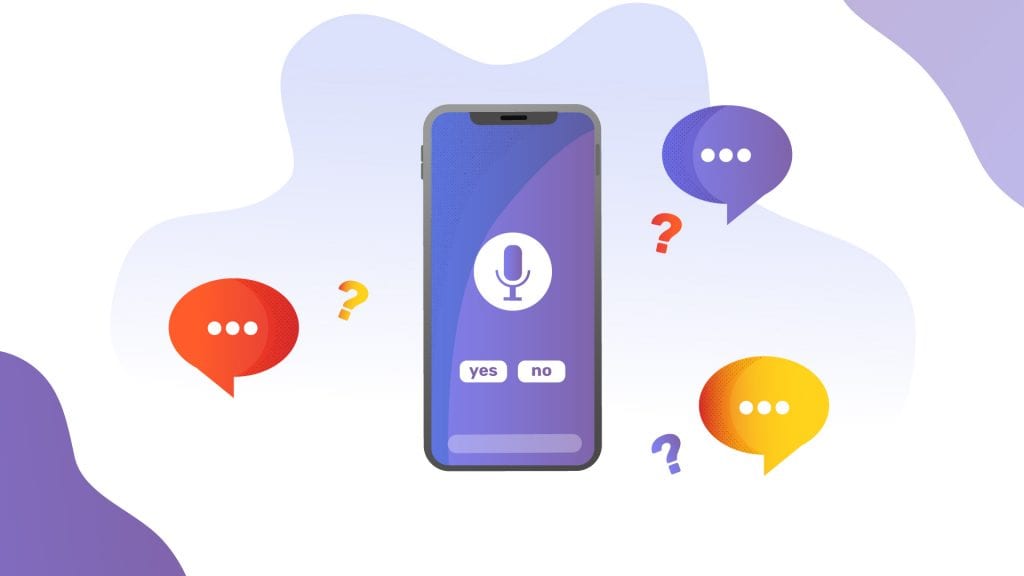How to Analyze Interview Transcripts in Qualitative Research
Transcription is a great method for interview data analysis — especially for qualitative research. Learn more about it and how Rev can help.

Studies take time, accuracy, and a drive to provide excellent information, and qualitative research is a critical part of any successful study. You may be wondering how qualitative data adds to a paper or report, given that it’s not the hard “science” we often see highlighted the most often.
How Do You Analyze Qualitative Interviews?
There are two main approaches to qualitative analysis: inductive and deductive. What’s more, there are two types of inductive qualitative analysis to choose from. These are called thematic content analysis and narrative analysis, both of which call for an unstructured approach to research.
Inductive Methods of Analyzing Interview Transcripts
A thematic content analysis begins with weeding out biases and establishing your overarching impressions of the data. Rather than approaching your data with a predetermined framework, identify common themes as you search the materials organically. Your goal is to find common patterns across the data set.
A narrative analysis involves making sense of your interview respondents’ individual stories. Use this type of qualitative data analysis to highlight important aspects of their stories that will best resonate with your readers. And, highlight critical points you have found in other areas of your research.
Deductive Approach to Qualitative Analysis
Deductive analysis, on the other hand, requires a structured or predetermined approach. In this case, the researcher will build categories in advance of their analysis. Then, they’ll map connections in the data to those specific categories.
Each of these qualitative analysis methods lends its benefits to the research effort. Inductive analyses will produce more nuanced findings. Meanwhile, deductive analyses allow the researcher to point to key themes essential to their research.
Successful qualitative research hinges on the accuracy of your data. This can be harder to achieve than with quantitative research. It’s easy to lose important facts and meaning as you transition qualitative data from the source to your published content. This makes transcription a vital tool in maintaining integrity and relaying information in an unbiased way that’s useful for readers and adds appropriate context to the journal or study.
How to Transcribe a Qualitative Interview
Accurate transcription begins early in the interview process, even before you start interviewing. Here are the steps to transcribing a qualitative interview.
1. Collect Feedback for Qualitative Research
There are dozens of ways to gather qualitative data. Recording and accurately transcribing interviews is among the best methods to avoid inaccuracies and data loss, and researchers should consider this approach over simply taking notes firsthand.
Make sure you have a reliable way to record, whether the interview takes place in person, over the phone, or as part of a video call. Depending on the interview method, you may record a video or an audio-only format. Here are some tips depending on where the interview takes place:
- For in-person interviews, we recommend using a reliable voice recorder app, such as the Rev Voice Recorder. It’s free to download on the Apple App Store and Google Play Store, or in your browser, and even allows you to order transcripts of your interview directly from the app.
- These apps can also be used for over-the-phone interviews.
- For video interviews, we recommend taking advantage of one of our transcription integrations, such as Zoom. Rev also has an API available for those who want to streamline their workflow even further by integrating Rev directly into their processes and platforms.
2. Organize Your Research Recordings
You should ensure that your audio or video files are easy to save, compile, and share. To do this, be sure to adopt easy-to-remember naming conventions as well to ensure they stay organized. An example of a naming convention that is simple to remember and recreate includes “Date.LastNameofSource.Topic”.
3. Transcribe All the Interviews and Focus Group Recordings
The next critical step is transcription. Done manually, this is a long and tedious process that can add hours, days, or even months to your report-writing process. There are dozens of pitfalls when performing transcriptions manually as well, as it can be hard to pick up words spoken in a heavy dialect or quiet tone. You also want to avoid having to transcribe all the “umms” and “ems” that occur when a source is speaking naturally.
Why researchers choose Rev over manual transcription:
Rev provides a variety of transcription services that take the tedium and guesswork out of the research process. You can choose to edit out all of the "umms," while ensuring that heavy accents or muffled voices are picked up by the recording service.
Pro tip: It's recommended that you use the human transcription option if you have anything less than a perfect audio recording. At 99% accuracy, it's also more suitable for highly technical reports – where correct details are a must to maintain the integrity of the report. But you can also try our AI transcription for free to see how our results stack up.
You can order transcripts from Rev with both audio and video recordings. Once you've received your professional transcripts from Rev, you can begin your qualitative analysis.
Real Researcher Results:
"For my study, I conducted interviews via Zoom and in person. The audio quality for in person interviews was often poor. Rev's technology filtered out background noise, producing pretty accurate transcripts that do not require extensive cleaning on my part! The ability to organizing my transcripts is also useful." - Patrick K., Researcher
The 6 Steps of Qualitative Interview Data Analysis
Among qualitative interview data analysis methods, thematic content analysis is perhaps the most common and effective method. It can also be one of the most trustworthy, increasing the traceability and verification of an analysis when done correctly. The following are the six main steps of a successful thematic analysis of your transcripts.
1. Read the Transcripts
By now, you will have accessed your transcript files as digital files in the cloud or have downloaded them to your computer for offline viewing. Start by browsing through your transcripts and making notes of your first impressions. You will be able to identify common themes. This will help you with your final summation of the data.
Next, read through each transcript carefully. Evidence of themes will become stronger, helping you to hone in on important insights.
You must identify bias during this step as well. Biases can appear in the data, among the interviewees, and even within your objectives and methodologies. According to SAGE Publishing, researchers should “acknowledge preconceived notions and actively work to neutralize them” at this early step.
2. Annotate the Transcripts
Annotation is the process of labeling relevant words, phrases, sentences, or sections with codes. These codes help identify important qualitative data types and patterns. Labels can be about actions, activities, concepts, differences, opinions, processes, or whatever you think is relevant. Annotations will help you organize your data for dissemination.
Be generous with your annotations—don’t hold back. You will have an opportunity to eliminate or consolidate them later. It’s best to do more here, so you don’t have to come back to find more opportunities later.

3. Conceptualize the Data
Conceptualizing qualitative data is the process of aligning data with critical themes you will use in your published content. You will have identified many of these themes during your initial review of the transcripts.
To conceptualize, create categories and subcategories by grouping the codes you created during annotation. You may eliminate or combine certain codes rather than using all the codes you created. Keep only the codes you deem relevant to your analysis.
4. Segment the Data
Segmentation is the process of positioning and connecting your categories. This allows you to establish the bulk of your data cohesively. Start by labeling your categories and then describe the connections between them.
You can use these descriptions to improve your final published content.
- Create a spreadsheet to easily compile your data.
- Then, use the columns to structure important variables of your data analysis using codes as tools for reference.
- Create a separate tab for the front of the document that contains a coding table. This glossary contains important codes used in the segmentation process. This will help you and others quickly identify what the codes are referring to.
Note: While it’s assumed that you will do many of these steps electronically, some people work better with physical paper and highlighter pens. You should save a copy of everything online, but feel free to print out transcripts to do this process as needed.
5. Analyze the Segments
You’re now ready to take a deep dive into your data segments. Start by determining if there is a hierarchy among your categories. Determine if one is more important than the other, or draw a figure to summarize the results. At this stage, you may also want to align qualitative data with any quantitative data you collected.
6. Write the Results
Your analysis of the content is complete—you’re ready to transition your findings into the real body of your content. Use your insights to build and verify theories, answer key questions in your field, and back aims and objectives. Describe your categories and how they are connected using a neutral, objective voice.
Although you will pull heavily from your own research, be sure to publish content in the context of your field. Interpret your results in light of relevant studies, theories, and concepts related to your study.
Why Use Interviews for Qualitative Data
Unlike quantitative data, which is certainly important, a qualitative analysis adds color to academic and business reports. It offers perspective and can make a report more readable, add context, and inspire thoughtful discussion beyond the report.
As we’ve observed, transcribing qualitative interviews is crucial to getting less measurable data from direct sources. They allow researchers to provide relatable stories and perspectives and even quote important contributors directly. Lots of qualitative data from interviews enables authors to avoid embellishment and maintain the integrity of their content as well.
So, how do you conduct interview data analysis on qualitative data to pull key insights and strengthen your reports? Transcribing interviews is one of the most useful tools available for this task.
"I most appreciate how accurate the AI-generated transcripts are, even for heavy accents. This drastically reduces the amount of time needed to finish verifying the transcripts by hand, and has made it financially feasible to run about 3 times as many research studies per year as usual."
- Jennifer B., Researcher
Transcription is Essential to Qualitative Research Analysis
Qualitative data is often elusive to researchers. Transcripts allow you to capture original, nuanced responses from your respondents. You get their response naturally using their own words—not a summarized version in your notes.
You can also go back to the original transcript at any time to see what was said as you gain new context. The editable digital transcript files are incredibly easy to work with, saving you time and giving you speaker tags, time marks, and other tools to ensure you can find what you need within a transcript quickly.
The Rev Advantage for Researchers:
- 99% accuracy rate - outperforms competitors in challenging audio conditions
- Multi-speaker environments - handles focus groups and panel discussions
- Heavy accent recognition - works with diverse participant populations
- Background noise filtering - perfect for field research conditions
- Flexible subscription model - scale up during data collection periods, scale down during analysis
- Data privacy controls - opt out of AI training for sensitive research
- 24-hour customer support - resolve issues quickly during critical research timelines
When creating a report, accuracy matters, but efficiency matters, as well. Rev offers a seamless way of doing the transcription for you, saving you time and allowing you to focus on high-quality work instead.
















